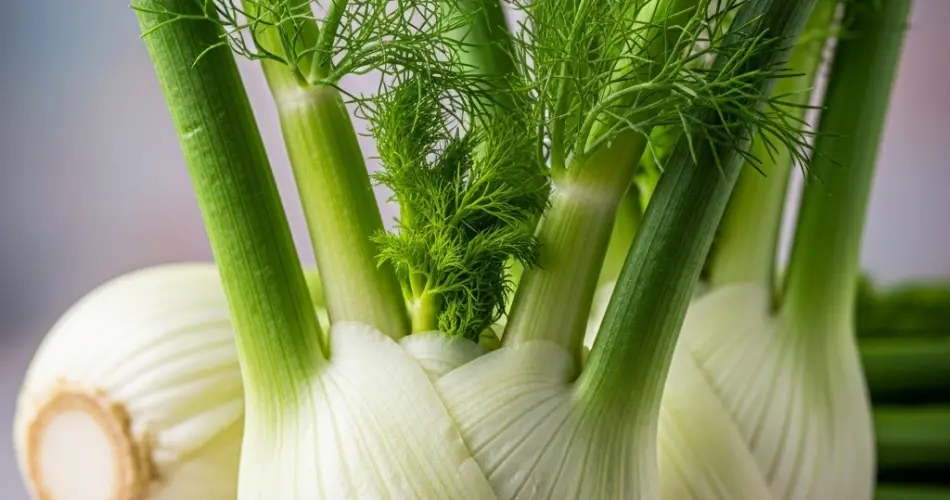Fennel is a flavorful and aromatic vegetable known for its crisp texture and subtle licorice-like taste. Whether you grow it in your garden or purchase it from a market, proper storage is key to preserving its freshness and extending its shelf life. Without the right storage techniques, fennel can quickly lose its flavor and become limp or spoiled. Here’s a complete guide on how to store fresh fennel so it stays crisp and tasty for as long as possible.
Understanding Fennel’s Structure
Before diving into storage methods, it helps to understand the parts of fennel:
-
Bulb: The white, crunchy base, used raw or cooked.
-
Stalks: These are more fibrous and can be used for stocks or flavoring dishes.
-
Fronds: The feathery green tops, often used as garnish or in salads.
Each part requires a slightly different storage approach, especially if you plan to use them separately.
Choosing Fresh Fennel
For long-lasting storage, start with the freshest fennel possible. Look for:
-
A firm, heavy bulb with no soft spots or blemishes.
-
Bright white coloration with no browning or drying.
-
Crisp green stalks and vibrant fronds with no wilting.
Avoid fennel with signs of drying, browning, or a rubbery texture.
Best Ways to Store Fresh Fennel
1. Refrigerating Whole Fennel
The refrigerator is the ideal place to keep fennel fresh for over a week.
Steps:
-
Do not wash the fennel before storing. Moisture encourages mold and decay.
-
Wrap the whole bulb, including stalks and fronds, in a slightly damp paper towel.
-
Place it in a perforated plastic bag or a breathable produce bag.
-
Store it in the crisper drawer of your refrigerator.
Properly stored this way, fennel can last 7–10 days before it starts to degrade.
2. Separating Parts for Individual Use
If you know you’ll use the bulb and fronds separately, consider cutting them before storing.
-
Bulb: Trim away the stalks and fronds. Wrap the bulb in a damp paper towel and place it in an airtight container or resealable bag. Store in the crisper drawer.
-
Stalks: Place in a plastic bag and refrigerate. Use within a few days, as they don’t last as long as the bulb.
-
Fronds: Wrap in a damp paper towel and store inside a zip-lock bag in the fridge. Alternatively, freeze them for longer storage (see below).
How to Freeze Fennel
Freezing fennel is a good option if you have more than you can use within a week. However, freezing works better for cooked fennel or for recipes where texture isn’t crucial (like soups or stews), as it loses some crispness after thawing.
To freeze the bulb:
-
Wash and chop the bulb into slices or cubes.
-
Blanch in boiling water for 30–60 seconds, then transfer immediately to an ice bath.
-
Drain and dry completely.
-
Place pieces in a single layer on a baking sheet and freeze until solid.
-
Transfer frozen fennel to a freezer-safe bag or container. Label with the date.
Frozen fennel can last 6–8 months in the freezer.
To freeze fronds:
-
Chop finely and place in an ice cube tray with a bit of water or olive oil.
-
Once frozen, transfer cubes to a freezer bag.
Use these cubes to flavor sauces, soups, or dressings.
Storing Cooked Fennel
If you’ve already cooked fennel (roasted, sautéed, or braised), you can store it in the fridge in an airtight container for up to 3–4 days. Make sure it cools completely before refrigerating. For longer storage, freeze cooked fennel following the same method as fresh.
Tips to Maximize Freshness
-
Avoid moisture buildup. Too much water can cause rot. Always pat fennel dry before wrapping it.
-
Keep away from ethylene-producing fruits like apples and bananas, which can cause fennel to spoil faster.
-
Label your storage bags or containers with the date so you can keep track of freshness.
-
Use a produce saver or perforated storage bag to maintain airflow while keeping humidity balanced.
Signs That Fennel Has Gone Bad
Watch out for these signs of spoilage:
-
Soft, mushy, or slimy texture.
-
Brown or black spots on the bulb.
-
A sour or off smell.
-
Wilted, slimy fronds.
Discard any fennel showing these signs, especially if you see mold.
Final Thoughts
Fennel’s distinct flavor and versatility make it a great addition to many dishes, but it’s important to store it correctly to get the most out of its freshness. Whether you keep it whole in the fridge, separate its parts, or freeze it for future use, these storage tips can help you reduce waste and always have flavorful fennel on hand when you need it.



